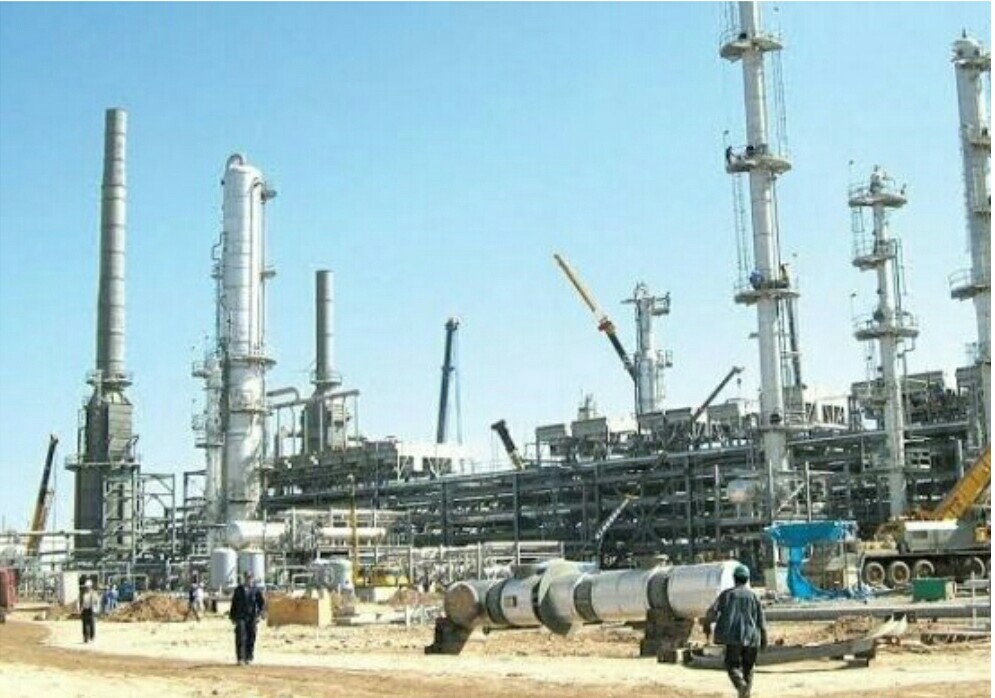The Nigerian Content Development and Monitoring Board ( NCDMB), says it will partner Waltersmith Petroleum Ltd. to construct a modular refinery in Brass Island in Bayelsa.
The Executive Secretary of the board, Mr Simbi Wabote disclosed this in a statement issued by the Board’s Management in Abuja on Thursday.
He spoke at the commissioning of a modular science laboratory at Model Government Secondary School, Twon Brass and an Information Communication Technology (ICT) Centre at Government Secondary School Okpoama, both in Brass Local Government Area of the state.
According to him, a number of investments opportunities are being considered by NCDMB for Brass Island.
“They include siting a modular refinery in partnership with Waltersmith Petroleum Ltd. and utilising feed stock from the Nigerian Agip Oil Company, which operates in the location.
“It is also a veritable location for even a dry dock facility or a floating dock facility.
“NCDMB is currently studying a strategy for establishing and enhancing all the existing dry dock facilities to maintain our ships, light crafts and also expand our integration base in the country.
“Brass Island development will force down oil production cost,” he said.
He noted that the Island as a strategic location, had the closest point from where one could access many of the Floating Production Storage and Offloading (FPSO) platforms that operate off the shores of Nigerian waters, including Bonga main.
Wabote said that some of the offshore oil and gas fields were currently being accessed from far locations like Lagos, with considerable cost implications.
He said that developing and utilising nearby locations like Brass Island for oil and gas logistics operations would help the industry meet the recent charge by the Minister of State for Petroleum Resources for players in the industry to ensure a significant reduction in the cost per barrel of Nigeria’s crude oil production.
“Part of the strategy is to site logistics requirements where it is easy to access, reducing time, fuel consumption and improving Turn Around Maintenance (TAM) time.
“A serious study is going on currently to see the things that would be possible on the Island of Brass in order to bring down our cost of production.”
commenting on the donation of a laboratory and ICT Centre to the secondary schools in Brass, he said that it was part of effort to build capacity of Nigeria which was in line with the mandate of the board.
“Capacity building is one of NCDMB’s key objectives and the agency had decided to promote such efforts from the primary school level up to the university level.
“So far, NCDMB had donated 25 ICT centres to secondary schools across the country and built the capacity of teachers in some states as part of its capacity building and corporate social responsibility programmes.
“We believe in enhancing the quality of Science, Technology, Engineering and Mathematics (STEM) education.
“It is sad that in some secondary schools, particularly in remote locations, students are taught these subjects without any practical experience.
“Our strategy going forward is to encourage STEM education as well as ICT in secondary schools across the country.
“These days every entrance examination is done online and if we don’t start inculcating those knowledge in secondary students, most of them will fall behind in meeting up with the ICT age,” he said.
On strategies for maintaining the centres, Wabote explained that NCDMB had instituted a sustainability programme, which includes a one year management arrangement and training of staff and locals to operate the centres.
He assured that NCDMB would run periodic assessments of the facilities and develop new strategies to sustain them.
“We have a strategic objective and a plan to follow through on most of these centres we have established for sustainability. For us, it is an end to end thinking in most of these activities we are doing,” Wabote said.
